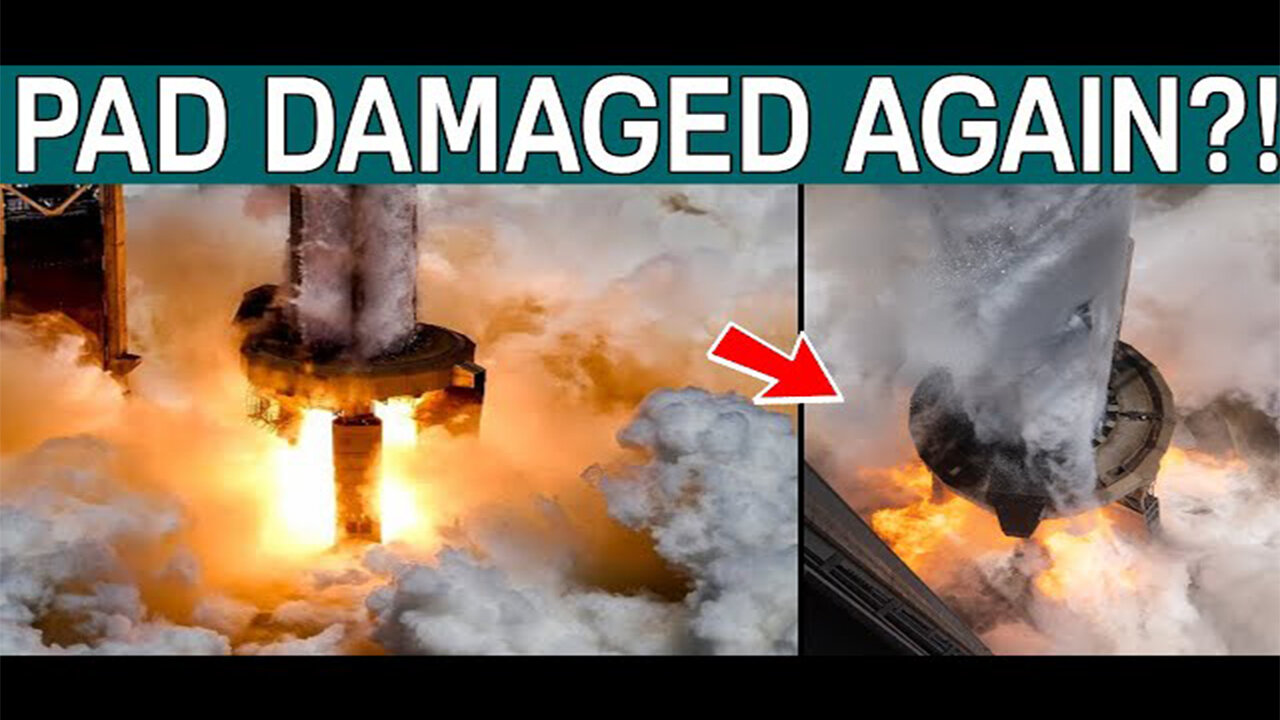Premium Only Content

33 Engines Test Fire Aftermath, Launch Pad Damaged?!
Recently, SpaceX conducted another static fire test for its Starship booster 9. This event was not just another test; it marked the second time they've tested this since its launch into orbit back in April. Their goal? To prepare for their next big step: a second orbital test flight. What's truly remarkable about this is the speed at which SpaceX is making these advancements. In less than three weeks, they've held two static fire tests. For those unfamiliar with the space industry's usual pace, this kind of rapid progress is quite astonishing.
To provide some context, consider SpaceX's main competitor, Blue Origin. Both these companies have a lot in common. Both were founded by tech billionaires: SpaceX by Musk and Blue Origin by Bezos. Blue Origin has been working on its own rocket, the New Glenn, which many believed would rival or even surpass SpaceX's Starship. However, here's where the story takes a twist: despite the Starship being tested multiple times, undergoing numerous launches, and being visibly active, the New Glenn rocket hasn’t made any public test flights. And what's even more surprising? The idea and development of New Glenn started before Starship, showcasing the contrasting speeds at which the two companies operate.
For those who've been following the recent developments at starbase facility, you might remember that the first test on august 6 presented unexpected complications. The ignition sequence for the 33 Raptor engines did not go according to plan. A malfunction led to four of these engines shutting down far sooner than anticipated. As a result, what was intended to be a 5-second demonstration was abruptly cut short, clocking in at a mere 2.74 seconds. These unexpected hiccups provided clear indications that SpaceX was grappling with the reliability of its Raptor engines.
Fast forward to today, SpaceX's latest static fire test of Booster 9 showcased significant progress. The test achieved a near full duration firing of around 5 seconds before the engines shut down as intended. While SpaceX has not yet confirmed whether all 33 Raptor engines were operational during the test, Musk indicated the static fire's success, suggesting that the company has made strides in addressing previous concerns.
-
 10:36
10:36
Clownfish TV
10 hours agoMSNBC and Rachel Maddow NEED Trump to Stay in Business...
18.3K3 -
 4:10
4:10
PerpetualHealthCo
17 hours agoFDA Bans Red Dye No.3
4.13K -
 59:57
59:57
Trumpet Daily
19 hours ago $3.73 earnedRemembering Herbert W. Armstrong - Trumpet Daily | Jan. 16, 2025
6.91K12 -
 26:07
26:07
The Lou Holtz Show
13 hours agoThe Lou Holtz Show S 2 Ep 1 | Tony Rice on Championship Leadership and Notre Dame Legacy #podcast
14.3K -
 53:37
53:37
Weberz Way
13 hours agoGOODBYE JOE, TRUMPS CABINET, LA FIRES, & KEEP TIKTOK
8.48K -
 3:07:17
3:07:17
Alex Zedra
10 hours agoLIVE! New Game | Exorcism!??
36K4 -
 6:00:06
6:00:06
SpartakusLIVE
13 hours agoThe Conqueror of Corona || Delta Force LATER
86.8K3 -
 2:17:30
2:17:30
barstoolsports
16 hours ago$250k Winner Revealed With Final Votes And Reunion | Surviving Barstool S4 Finale
136K9 -
 2:05:49
2:05:49
Kim Iversen
14 hours agoTikTok Ban BACKFIRES: Millions Flee To New App Showing The REAL China
123K187 -
 1:35:12
1:35:12
Glenn Greenwald
16 hours agoCNN And Jake Tapper In Deep Trouble In Defamation Lawsuit: With Jonathan Turley; TikTok Ban, Trump's China Policy, And More With Arnaud Bertrand | SYSTEM UPDATE SHOW #390
116K87